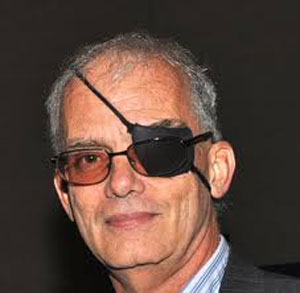
Submitted by Tomika Anderson
Marcus Day is director of the Caribbean Drug Abuse Research Institute as well as founder and coordinator of the Caribbean Harm Reduction Coalition, based in Castries, St. Lucia. He is also a member of the governance committee for the International AIDS Conference (AIDS 2012). Here he speaks about what he believes needs to happen to stamp out the HIV/AIDS pandemic; what he’s looking forward to at this year’s conference this July in Washington, D.C.; and why it’s important for Black Americans to attend.
What do you believe needs to happen to end the HIV/AIDS epidemic?
Science must trump ideology—meaning we must develop the political will to follow science rather than ideology. Basically, politicians must get their heads out of their asses about what we must do to eradicate this disease.
What do you look forward to seeing at AIDS 2012?
I want to see Occupy Washington. I want to see thousands of people from America who have been subjugated and relegated to the back of the bus make some noise. This is a great opportunity for people to come forward and be heard about the disparities that are impacting them. I want to see people acting up. I want to see people seize the opportunity they have to focus the world on Washington.
Why is AIDS 2012 so important?
For impacted communities, it’s an opportunity to use the conference as a vehicle to get out their message and ask why they’re not part of the process as well as the solution. It’s also an opportunity to beat down some of this backward ideology. Everybody tries to do evidence-based programming, but then when we do evidence-based programming, it’s like, “Oh no, we can’t do that. It’ll never fly in the political realm.” So it’s an opportunity to get out there and show that the problem lies in the politics, not the science. The science is clear.
Why do Black Americans need to attend and get involved in the movement?
On every indicator there is, Black Americans fall short of any gauge of wellness in terms of healthy behaviors, access to health care, access to medications—everything in the system is designed to hold them down. Getting out there, being heard and letting people see their Black faces is critical. The misinformation has to stop.
We’re constantly being bombarded with examples of the disparities. It’s hard enough being Black in America; then you’re gay and Black, or you’re HIV positive and Black, or a drug user and Black. Every time you add another stigmatized behavior or indicator onto the bio, you fall farther and farther down the hole. It’s horrendous, and it’s time for it to stop.
Tomika Anderson is a freelance writer based in Brooklyn, N.Y. Her work has appeared in Essence, POZ, Real Health and Ebony magazines, among others.
